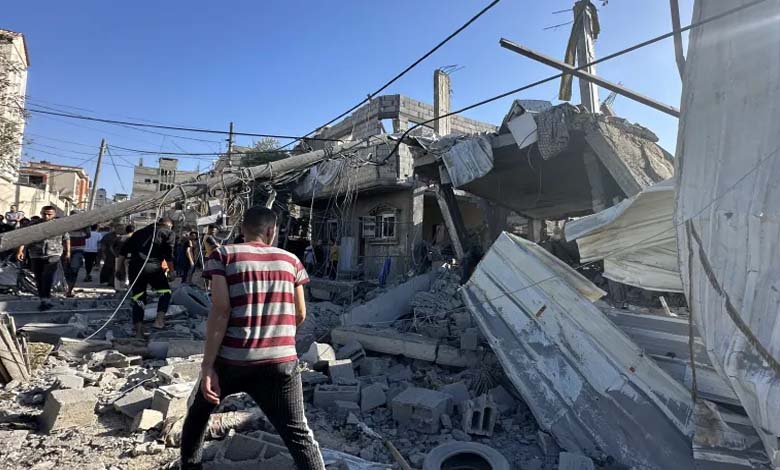Amnesty International calls for investigation into alleged Israeli war crimes in southern Lebanon

Amnesty has documented the destruction of more than ten thousand facilities in southern Lebanon, most of them occurring after the ceasefire agreement came into effect, describing this as a violation of international law.
-
Israel plans to expand its ground operations in southern Lebanon
-
The Silent Catastrophe: A Quarter of Historic Buildings in Southern Lebanon Collapse in the Face of Israeli War
In a report released on Tuesday, Amnesty International stated that the Israeli army had deliberately carried out widespread destruction in numerous border villages in southern Lebanon during its latest war with Hezbollah, urging an investigation into these acts as potential “war crimes.”
The conflict between Hezbollah and Israel lasted for more than a year and ended with a ceasefire in November. The deal required Hezbollah to withdraw from areas south of the Litani River and dismantle its military infrastructure, while Israel was expected to retreat from territories captured during the war.
-
Political Analyst: Netanyahu Seeks Expansion and Annexation of Southern Lebanon under Military Cover
-
The October 1 Paradox: Israel returns to southern Lebanon after 18 years of withdrawal
Amnesty stressed that “an investigation must be opened into the Israeli army’s large-scale and deliberate destruction of civilian property and agricultural land across southern Lebanon, as these amount to war crimes.”
The organization said it had submitted questions to the Israeli army in late June regarding the scale of destruction but had not received any response.
According to its findings, “more than 10,000 facilities were either severely damaged or destroyed between October 1, 2024, and January 26, 2025,” noting that most of the damage occurred “after the ceasefire agreement between Israel and Hezbollah came into force.”
-
Violent Clashes Between Hezbollah and Israel Amid Preparations for Total War in Southern Lebanon
-
Assassinated in a Night Raid on Southern Lebanon: Who is the Senior Hezbollah Military Leader Taleb Abdullah?
Under the terms of the truce, Israeli forces were required to withdraw from newly occupied territories within sixty days, yet they have remained stationed in several border areas. Israel still controls five strategic heights that Lebanon demands it vacate.
Amnesty reported that “Israeli forces used improvised explosives and bulldozers to destroy civilian infrastructure, including homes, mosques, cemeteries, roads, gardens, and football fields in 24 villages.”
This campaign has rendered “entire areas uninhabitable and destroyed the lives of countless people,” said Erika Guevara Rosas, Amnesty International’s Senior Director of Research, Advocacy and Policy.
-
Ghost Towns: How Southern Lebanon Became Deserted Areas After Israeli Strikes?
-
Explosions in Ain al-Hilweh Palestinian Refugee Camp in Southern Lebanon… What’s Happening?
The organization analyzed the destruction through videos, photographs, and satellite images of villages along the border strip, focusing on Kfarkela, Maroun al-Ras, Adaisseh, Aita al-Shaab, and al-Dhahira.
Among the evidence cited were “videos showing Israeli soldiers manually planting explosives inside homes, damaging roads and football fields, and bulldozing gardens and religious sites.”
Israel, however, maintains that its strikes targeted Hezbollah sites and infrastructure.
Amnesty concluded that “in numerous cases, the Israeli army carried out extensive destruction of civilian infrastructure in the clear absence of compelling military necessity, in violation of international humanitarian law.”
-
Suffering of Returning Southerners… Lebanon’s Homes Destroyed Due to Bombings
-
Disarming Palestinian Camps in Lebanon: A Historic but Challenging Step
Lebanon, meanwhile, has been unable to launch a reconstruction plan, particularly in border villages. In March, the World Bank estimated the country’s recovery and reconstruction needs at around 14 billion dollars.
The Lebanese authorities are counting on foreign support, especially from Gulf countries, to finance recovery and reconstruction. However, Gulf states have clarified that no assistance will be provided unless decisive steps are taken to disarm Hezbollah, expressing concern that any reconstruction carried out while it remains active would ultimately benefit the group.












